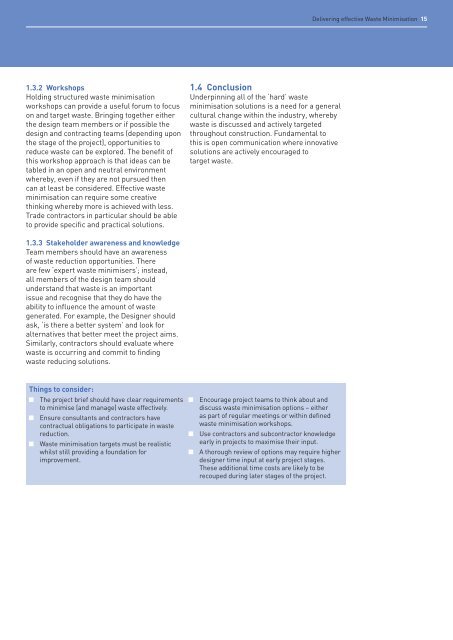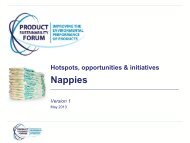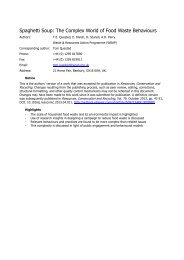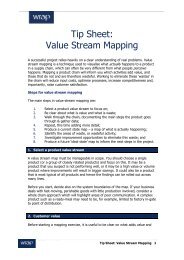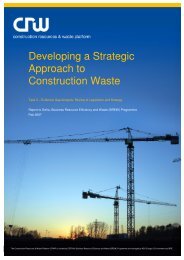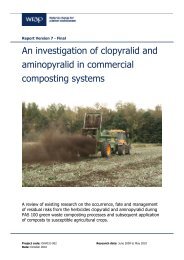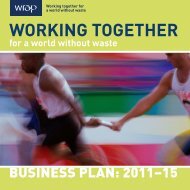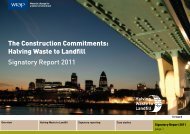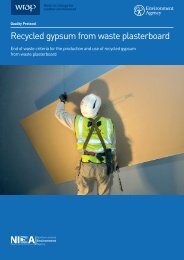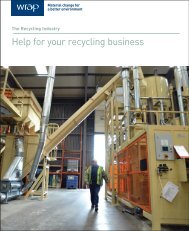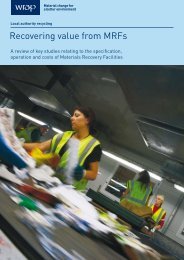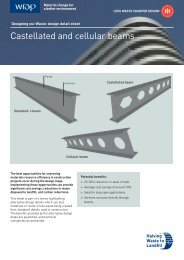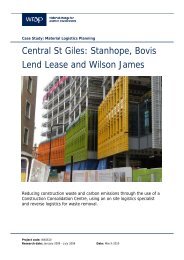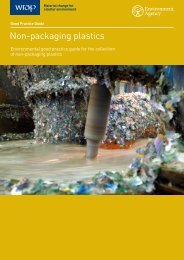Delivering effective Waste Minimisation - Wrap
Delivering effective Waste Minimisation - Wrap
Delivering effective Waste Minimisation - Wrap
Create successful ePaper yourself
Turn your PDF publications into a flip-book with our unique Google optimized e-Paper software.
<strong>Delivering</strong> <strong>effective</strong> <strong>Waste</strong> <strong>Minimisation</strong> 15<br />
1.3.2 Workshops<br />
Holding structured waste minimisation<br />
workshops can provide a useful forum to focus<br />
on and target waste. Bringing together either<br />
the design team members or if possible the<br />
design and contracting teams (depending upon<br />
the stage of the project), opportunities to<br />
reduce waste can be explored. The benefit of<br />
this workshop approach is that ideas can be<br />
tabled in an open and neutral environment<br />
whereby, even if they are not pursued then<br />
can at least be considered. Effective waste<br />
minimisation can require some creative<br />
thinking whereby more is achieved with less.<br />
Trade contractors in particular should be able<br />
to provide specific and practical solutions.<br />
1.4 Conclusion<br />
Underpinning all of the ‘hard’ waste<br />
minimisation solutions is a need for a general<br />
cultural change within the industry, whereby<br />
waste is discussed and actively targeted<br />
throughout construction. Fundamental to<br />
this is open communication where innovative<br />
solutions are actively encouraged to<br />
target waste.<br />
1.3.3 Stakeholder awareness and knowledge<br />
Team members should have an awareness<br />
of waste reduction opportunities. There<br />
are few ‘expert waste minimisers’; instead,<br />
all members of the design team should<br />
understand that waste is an important<br />
issue and recognise that they do have the<br />
ability to influence the amount of waste<br />
generated. For example, the Designer should<br />
ask, ‘is there a better system’ and look for<br />
alternatives that better meet the project aims.<br />
Similarly, contractors should evaluate where<br />
waste is occurring and commit to finding<br />
waste reducing solutions.<br />
Things to consider:<br />
The project brief should have clear requirements<br />
to minimise (and manage) waste <strong>effective</strong>ly.<br />
Ensure consultants and contractors have<br />
contractual obligations to participate in waste<br />
reduction.<br />
<strong>Waste</strong> minimisation targets must be realistic<br />
whilst still providing a foundation for<br />
improvement.<br />
Encourage project teams to think about and<br />
discuss waste minimisation options – either<br />
as part of regular meetings or within defined<br />
waste minimisation workshops.<br />
Use contractors and subcontractor knowledge<br />
early in projects to maximise their input.<br />
A thorough review of options may require higher<br />
designer time input at early project stages.<br />
These additional time costs are likely to be<br />
recouped during later stages of the project.


